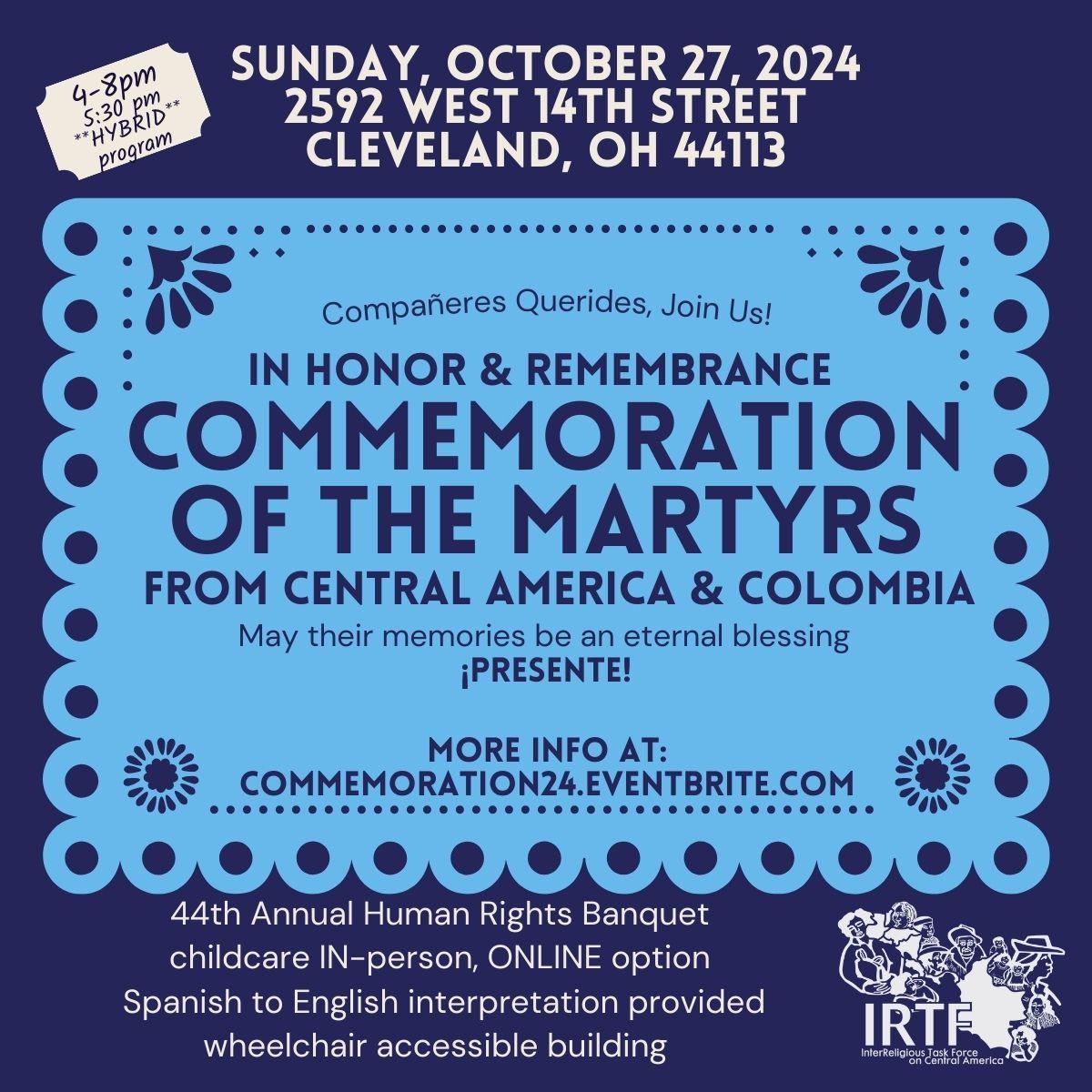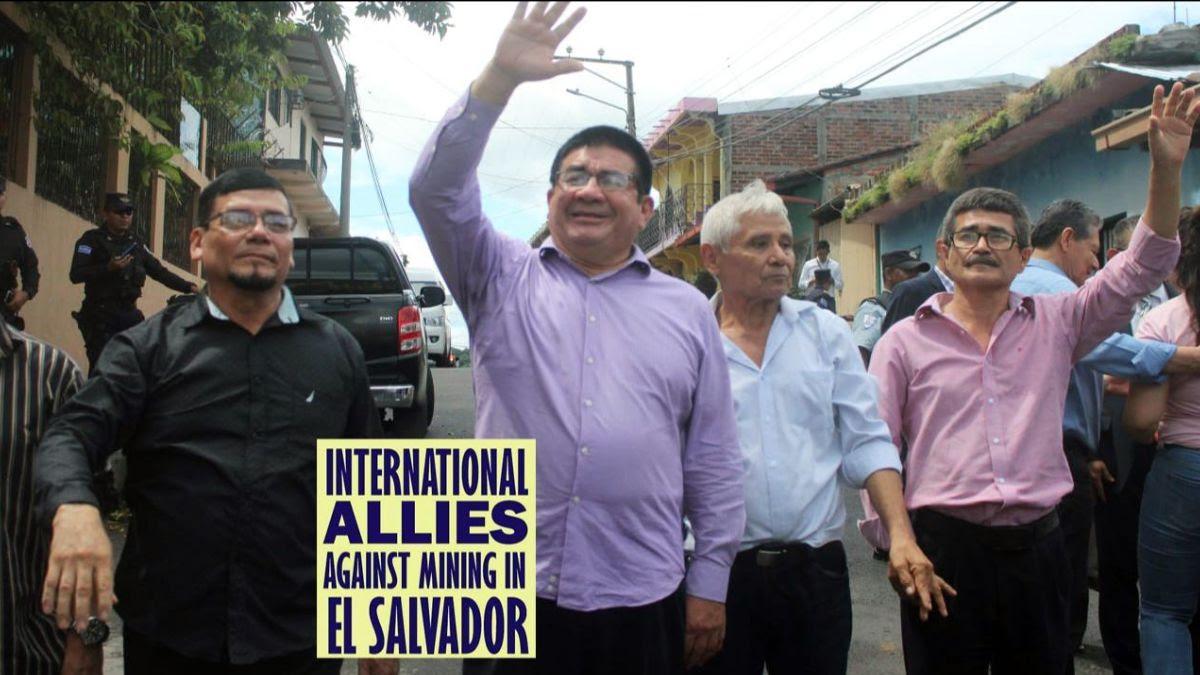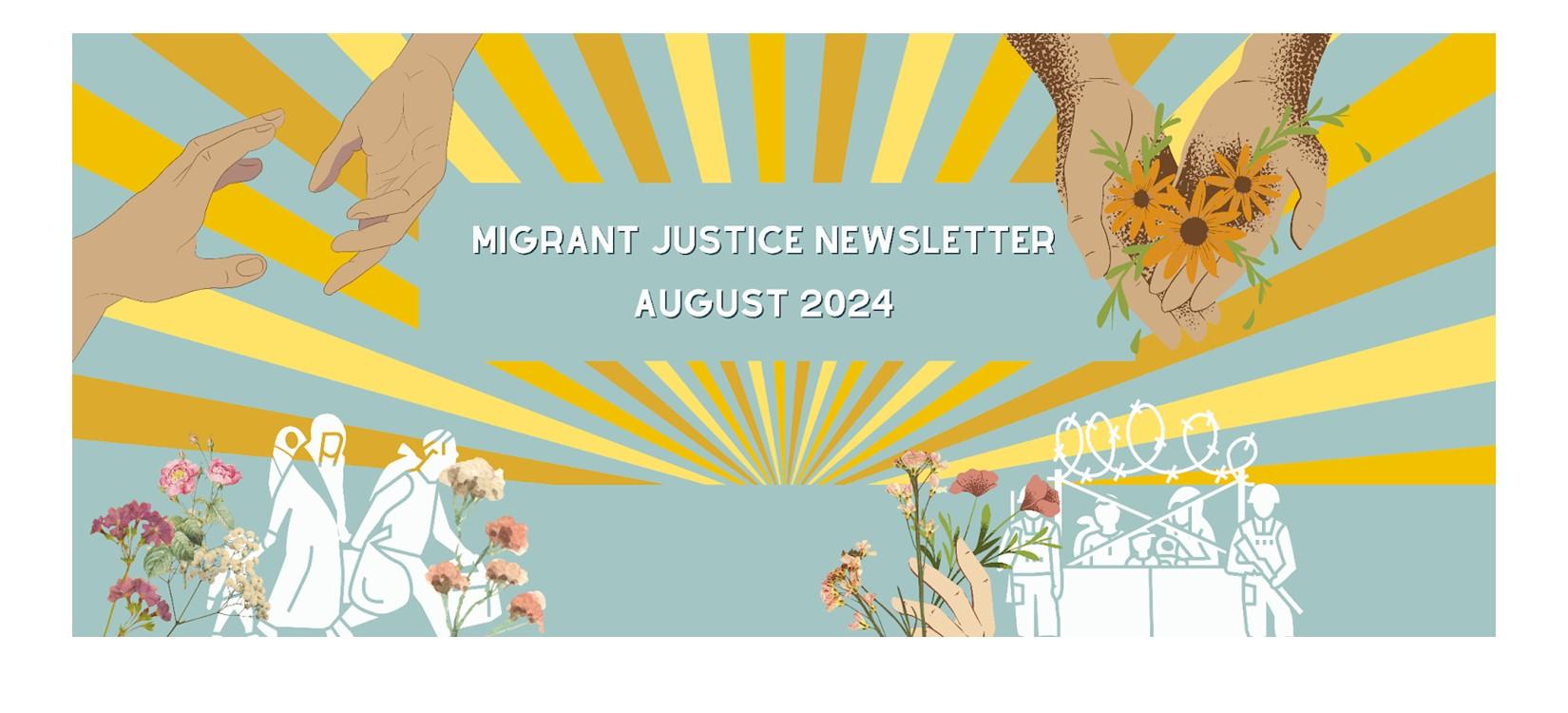- Home
- About Us
- Issues
- Countries
- Rapid Response Network
- Young Adults
- Get Involved
- Calendar
- Donate
- Blog
You are here
El Salvador: News & Updates
El Salvador is the smallest and most densely populated country in Central America. The US-backed civil war, which erupted after the assassination of Archbishop Oscar Romero in 1980, lasted 12 years (1980-92), killing 70,000 people and forcing 20% of the nation’s five million people to seek refuge in the US.
Learn more here.
News Article
November 24, 2024
Hundreds of Salvadorans protested to demand the release of “innocent” individuals imprisoned during President Nayib Bukele’s crackdown on gangs.
“Freedom now,” read a banner carried by members of the Victims of the Regime Movement (Movir). Approximately 83,000 alleged gang members have been imprisoned under the state of emergency, which allows for arrests without warrants. However, according to humanitarian organizations such as Socorro Jurídico Humanitario, Cristosal, and Movir, around 30,000 of those detained are “innocent.”
The demonstration, which took place in the historic center of the city, was joined by doctors and teachers calling for improved public services
News Article
November 19, 2024
During the country’s civil war, in November 1989, a military commando stormed the Jesuit Central American University (Uca) campus, killing its rector, the Spanish priest Ignacio Ellacuría, five of his colleagues – Ignacio Martín Baró, Segundo Montes, Juan Ramón Moreno, Joaquín López y López, Amando López, along with Elba and Celina Ramos.
Now the former president Alfredo Cristiani, a former congressman and nine retired military officials are charged with murder and acts of terrorism over one of the most notorious crimes committed during the 12-year war, which left 75,000 civilians dead and only formally ended in 1992.
News Article
November 7, 2024
IRTF is grateful to the 200 supporters who gathered on October 27 at Pilgrim Church in Cleveland’s Tremont neighborhood for IRTF’s annual Commemoration of the Martyrs. In addition to marking the 44th anniversary of the martyrdom of Cleveland’s missioners in El Salvador (Jean Donovan and Sister Dorothy Kazel, alongside Maryknoll Sisters Ita Ford and Maura Clarke), we commemorated 36 human rights defenders killed in Central America and Colombia this past year because they dared to speak truth to power.
Our keynote speaker, Lorena Araujo of the largest campesino organization in El Salvador (CRIPDES), held the crowd’s attention with horrific stories of mass arrests, detentions and deaths currently happening under their government’s State of Exception, now in its third year. With more 88,000 imprisoned (and more than 300 deaths in prison), El Salvador now has the highest incarceration rate in the world—surpassing the astronomical rate of incarceration in the United States.
As the people of El Salvador face the greatest challenge to their democracy since the end of the civil war in 1992, they invite us to renew and deepen our solidarity.
If you would still like to make a donation:
https://bit.ly/3YDmETj via Zeffy platform
irtfcleveland.org/donate via Network for Good
News Article
October 18, 2024
Since early 2023, IRTF has been involved in an international solidarity campaign to drop bogus criminal charges against five environmentalists in El Salvador. After 20 months of petition gathering, calls to the US State Departement and US Embassy, a sign-on letter from the US Congress and other advocacy efforts, we are happy to report that the Santa Marta 5 have been freed!
The five prominent community leaders (Miguel Ángel Gámez, Alejandro Laínez García, Pedro Antonio Rivas Laínez, Antonio Pacheco, and Saúl Agustín Rivas Ortega) were all instrumental in the successful campaign to save El Salvador’s rivers from the threat of gold mining. With a unanimous vote in El Salvador’s National Assembly in March 2017, El Salvador became the first nation on earth to ban all metallic mining.
Since they were arrested in January 2023 on politically-motivated charges, IRTF has participated in an international campaign spanning 31 countries demanding that the bogus charges be dropped and denouncing the political motivations behind their detention given the lack of evidence presented by the Salvadoran Attorney General’s office.
News Article
October 9, 2024
Five environmental activists who helped secure a historic mining ban in El Salvador are facing life imprisonment for an alleged civil war-era crime.
The only evidence is a witness who strongly changed his testimony during the pre-trial hearings. No body or weapon has been found.
Since sweeping to power in 2019, Bukele and his allies have taken steps to “effectively co-opt democratic institutions”, replacing independent judges, prosecutors and officials with political allies, according to Human Rights Watch.
In a letter to the government in March 2023, a group of UN special rapporteurs and the vice-president of the UN working group on arbitrary detention, said: “We fear that the case is an attempt to intimidate those who seek to defend the environment in the country, and especially those who defend human rights from the negative impacts of mining.”
News Article
September 15, 2024
Bukele's crackdown on gangs has led to a drastic drop in homicides and is praised by many Salvadorans, but rights groups slam abuses in prisons, saying inmates are forced to confess and held without contact from families and lawyers.
The Salvadoran NGO Socorro Juridico Humanitario (SJH) estimates that almost a third of those detained are innocent -- based on a study of 3,500 cases.
"I am not defending, or against, the government. What I want is for them to hand over my brother, who is innocent," Yessica said at her home in San Jose Las Flores, north of the capital San Salvador.
Five years ago, her brother Carlos Alfonso, 44, was beaten to death by gang members in his neighborhood, and now she is afraid that Leonel, who suffers from epilepsy, will die in jail.
News Article
September 11, 2024
Many human rights organizations including the Inter-American Commission on Human Rights and Human Rights Watch have been reporting and presenting evidence of the human rights violations committed by President Bukele's government. As a reaction to this violence, people are heading demonstrations on the streets of El Salvador. These marches often get stopped by the police, but this time, on August 16 the Movement of Victims of the Regime reached the Presidential Palace.
"We wanted to get to the Presidential Palace. We had already been to almost all the government institutions, but we still hadn't gone to the Presidential Palace, [..] they always meet us with barricades. So one group of us gathered at the Savior of the World monument to attract attention while another went to the Presidential Palace, getting there quickly so they wouldn't block us," said Samuel Ramirez, a spokesperson form the Movement of Victims of the Regime.
News Article
September 10, 2024
On August 6, a new group in the U.S. House of Representatives, the El Salvador Caucus, sent a letter to Secretary of State Antony Blinken requesting that the State Department remove the elevated travel advisory status for El Salvador, its first official correspondence aimed at influencing U.S. policy towards El Salvador. The caucus—formally announced on July 8 by Florida Republican and vocal Trump supporter Representative Matt Gaetz, who co-chairs the caucus alongside Texas Democrat Vicente Gonzalez—emerged as increasing numbers of international headlines report on widespread human rights violations under Salvadoran President Nayib Bukele’s militarized state of exception, which has suspended many basic civil liberties nationwide for over two years in a so-called “war against gangs.”
In Gaetz’s words, however, “The El Salvador Caucus will exist to… encourage the strong reforms that President Bukele has put into effect” and “vindicate the choices President Bukele has made.”Like other congressional caucuses, the El Salvador Caucus has no authority within Congress other than to advance a common interest. The caucus’ stated mission is to promote “a better understanding of issues related to the United States’ relationship with El Salvador, our mutual interests and the interests of the United States.” In Gaetz’s words, however, “The El Salvador Caucus will exist to… encourage the strong reforms that President Bukele has put into effect” and “vindicate the choices President Bukele has made.” The caucus’ early actions and Gaetz’s statements suggest the group’s role is not only to boost the image of Bukele but also to drive the agenda of the Bukele government within the United States.
News Article
August 21, 2024
The article by Efren Lemus in El Faro on August 19, 2024, highlights severe issues within El Salvador's Bureau of Prisons under the state of exception. It documents cases where court-ordered releases were ignored, leading to deaths and continued unjust detainment. Families like that of Luis Armando Rodríguez faced repeated bureaucratic obstacles after his release was ordered, ultimately resulting in his death in prison. The Bureau of Prisons, accused of crimes and secrecy, has failed to comply with court orders, perpetuating a pattern of human rights abuses and institutional impunity despite international scrutiny.
News Article
August 15, 2024
In this monthly newsletter, please read about : 1) ICE Air: Update on Removal Flight Trends, 2) US Government Policy: Some legislators and DHS trying to do more to offer humanitarian relief to migrants, 3) Migration Impacts on Women, 4) At the Border, 5) Beyond Borders: Health and Safety in the Age of Migration in Mexico, 6) Changing Demographics: Migrants to the US Come from Different Corners of the Globe, 7) Danger in the Darién Gap: Human rights abuses and the need for human pathways to safety, 8) Texas Gets Tough on Migrants, 9) Economic Benefits of Immigration – both documented and undocumented migrants, 10) Biden Can Claim Record Numbers of Removals.
TAKE ACTION NOW
Here is what you can do to take action this week and act in solidarity with migrants and their families. (See details at the bottom of this newsletter.)
A) Join a Solidarity Delegation to Southern Mexico: November 11-16, 2024
B) Stop Criminalizing Migrants Traveling through the Darién Gap
C) Volunteer to Assistant Migrants and Refugees in Cleveland: Catholic Charities
D) Volunteer to Assistant Migrants and Refugees in Cleveland: NEO Friends of Immigrants
E) Get Paid to Assist Migrants and Refugees in Cleveland
F) Act Now for Welcoming, Dignified, and Just Immigration
Read the full IRTF Migrant Justice Newsletter each month at https://www.irtfcleveland.org/blog



